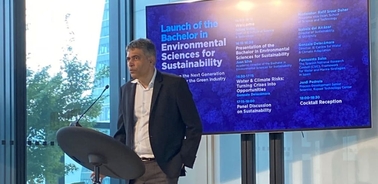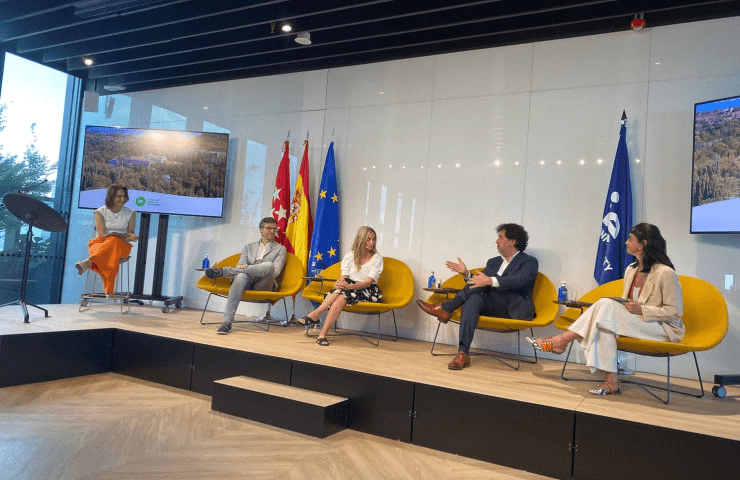IE School of Science and Technology Launches Bachelor in Environmental Sciences for Sustainability

The event pulled together experts to outline the complexity of issues included in the curriculum.
IE School of Science and Technology launched the Bachelor in Environmental Sciences for Sustainability (BESS) at an event that highlighted global challenges and introduced the innovative program that looks to help solve current issues by taking a multi-disciplinary approach.
“It will bring forward the next generation of leaders in the field of sustainability. They will become agents of change,” Juan Carlos Silva-Tamayo, Academic Director of the BESS said, as he explained the school has put great effort into developing a methodology that moves away from the traditional teaching to start with problems as a base.
“This degree has been designed for students with a desire to help society, a desire to make a difference - it will provide them with all the skills necessary to become leaders in the field of sustainability.”
Classes for the new degree will be held at IE’s Segovia campus.
According to Silva-Tamayo, green jobs are expected to increase by 35% year-on-year over the coming decade and IE students from the degree will go be able to go into the fields of: Environmental Science & Research, Energy & Critical Materials, Climate Solutions, Water Systems, Sustainable Agriculture & Food, and Sustainable Cities.
Gonzalo Delacámara, Director of IE’s Center for Water and Climate Adaptation, gave a keynote address about the complexity of managing clean water supply and how the issues beg a multi-faceted understanding. He emphasized that business models must evolve so that the financial risks related to sustainability for companies involve the Chief Sustainability Officer of the company as well as the Chief Financial Officer.
“Managing water resources is not about managing water. It’s about managing human activities exerting pressures over the use of water and that requires a multi-disciplinary approach,” Delacámara said. “Conflict is an inherent part of water resources management, but it can also be a very fertile state for cooperation.”
Executive Vice Dean Rafif Srour moderated a panel on sustainability that included Isabel Alcazar, Director of Sustainability for IE University, along with Delacámara, Fuensanta Salas of the Spanish National Research Council for Water and Marine Strategies in Spain and Jordi Pedrola, a process development senior scientist at Repsol Technology Center.
Participants applauded the new BESS and said future leaders that address the global challenges must be open-minded, adopt a systems-thinking approach, can interconnect different sectors and go beyond the description of the situation to address the cause.
